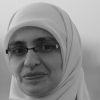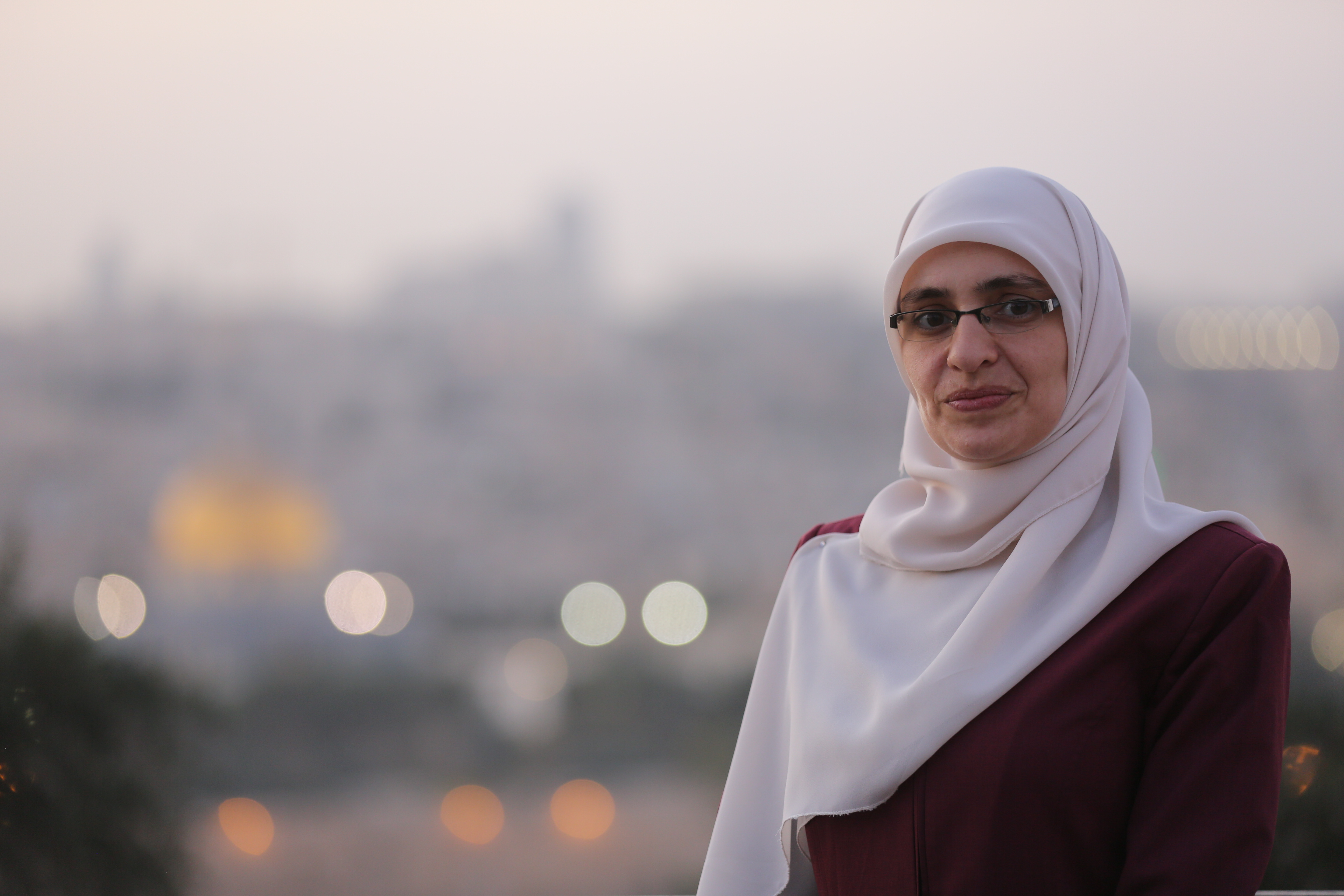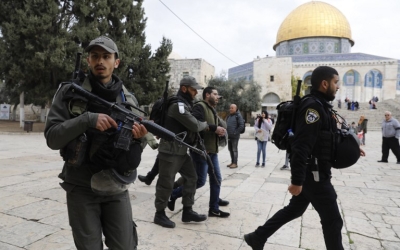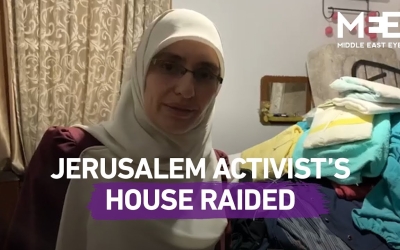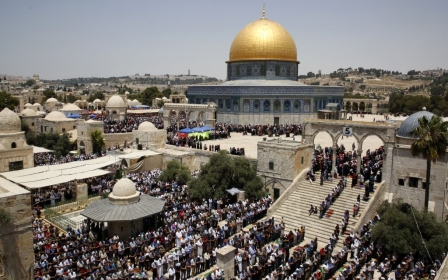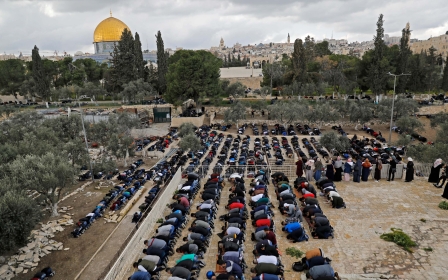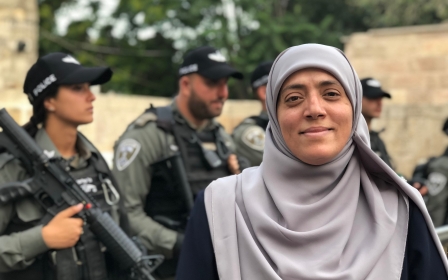For years, my life was al-Aqsa. Israel took that from me
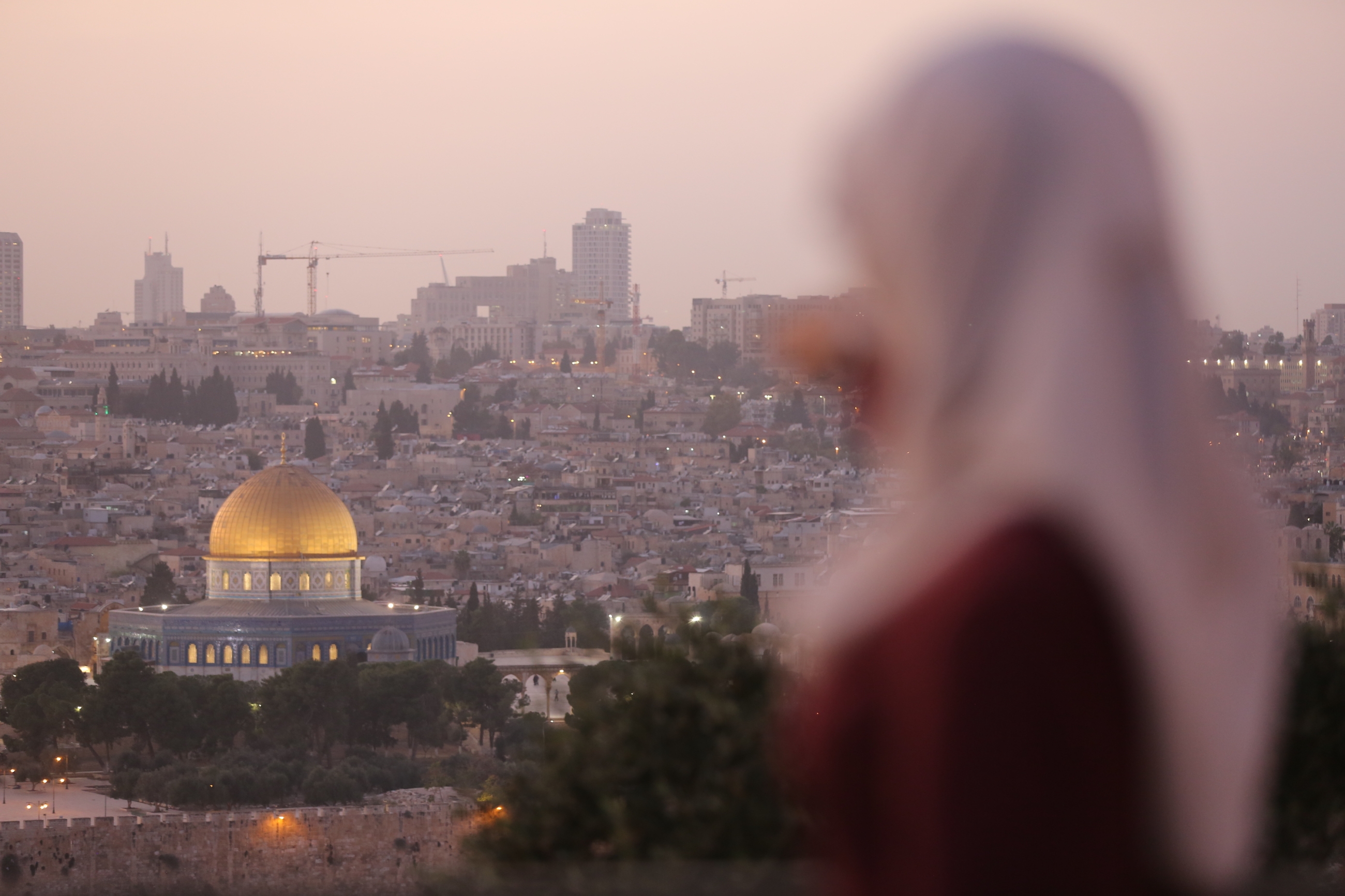
I live within walking distance of Al-Aqsa Mosque in the Old City of Jerusalem, yet, for nearly five years, the Israeli occupation has barred me from entering or praying there.
My home is in the neighbourhood of Wadi al-Joz, a 15-minute walk from the mosque - but I cannot access it due to punitive Israeli policies targeting those who make it their mission to be physically present and defend the space from being taken over or altered by settlers and Israeli occupation forces.
I am religiously observant and a political activist, and I feel that with all that has been taken from us as Palestinians in land, time and resources, Al-Aqsa Mosque is a red line.
Serving Jerusalem
Growing up in Jerusalem, my grandmother would take me regularly to Al-Aqsa Mosque and tell me stories of how several of my relatives were killed or injured during the 1948 Nakba, the ethnic cleansing of Palestine by Zionists.
New MEE newsletter: Jerusalem Dispatch
Sign up to get the latest insights and analysis on Israel-Palestine, alongside Turkey Unpacked and other MEE newsletters
Jerusalem has always been at the core of the Zionist project. I used to ask my grandmother, how can I serve Jerusalem and Al-Aqsa? She would say “clean it”, but I only realised when I grew older that she didn’t mean clean it literally; she meant clean it from the occupation.
Israel targets those who stand in the way of its plans to alter the status quo at Al-Aqsa Mosque compound
In 2011, I started frequenting Al-Aqsa Mosque compound on a daily basis as a teacher and student. I worked at an organisation inside the premises of the compound, known as Amaret Al-Aqsa (Building Al-Aqsa), which operated under the auspices of the Islamic Movement in the territories occupied by Israel in 1948.
The organisation launched an educational programme, for which I became the coordinator, that intended to revive old practices in the courtyards of Al-Aqsa Mosque compound.
Students would sit in a circle around their teachers to learn about Islam. The programme was aimed at students over 18 who did not get a chance to sit their matriculation exams for university, wanted to complete university BA studies, or wanted to take general classes.
We had about 15 tutors who taught a wide range of subjects; I taught religion and game studies due to my background in social work.
A central role
We started in 2011 with 50 female students, and by 2015, the figure had reached 650, in addition to 650 more male students. Their ages ranged between 18 and 70, including young women, mothers and grandmothers.
My day would begin with dawn (Fajr) prayers. As a wife and mother to four children, after praying, I would begin tidying up the house and cooking until very early in the morning.
When my children awoke, I would prepare them for school, and head off to Al-Aqsa to start my work at 7:30am, until 2:30pm. Two days a week, I would leave my teaching duties to study Quranic pronunciation for an hour, also inside Al-Aqsa premises.
For close to a decade, Al-Aqsa Mosque compound has been a central part of my daily life. Even on weekends, I take my children each Friday and we spend the day there, from Dhuhr to Maghrib and sometimes Isha prayers.
In 2015, however, my life changed drastically. The Israeli occupation outlawed the Islamic Movement and shut down its programmes inside Al-Aqsa Mosque compound, persecuting all those who were active. Since then, I have been slapped with consecutive six-month expulsion orders that have been systematically renewed. Days before the end of each six months, Israeli forces arrest me and issue a new order.
Arrests and interrogations
Israeli forces have arrested and interrogated me more than 30 times; interrogated my family members, including my husband and 20-year-old eldest daughter; raided my home at least eight times over the past four years; and banned me from being present in different parts of the country, and even from traveling abroad for periods of time. My children consistently wake up at night in fear of Israeli soldiers storming the house.
Despite being in and out of Israeli detention centres and interrogation rooms, I have never been found guilty of any crime. During interrogations, officers would accuse me of “incitement” for calling on people to defend Al-Aqsa, posting news about settler raids or violations by Israeli forces in the compound.
Time after time, they would release me after a few days in detention and impose punitive measures that have no purpose but to deter me from my activism and influence on the street: house arrests, travel bans and police surveillance.
After banning the Islamic Movement, the Israeli occupation also decided to designate some of the self-appointed guardians of al-Aqsa (Murabitat), including myself, as an “unlawful organisation” - despite the fact that we are not an “organisation” and do not function as one.
In 2017, I was barred from entering the entire occupied West Bank for six months for participating in events at universities in Nablus and Ramallah. For an entire year and a half, the national health insurance afforded to my family and I was stopped at the request of Israeli intelligence services, who claimed I was “not loyal” to the state.
Unjust policies
Today, I am barred from entering Al-Aqsa, as I have been for close to five years, despite the fact that I live within walking distance, and can hear the call to prayer from my home. I was barred even during Ramadan and Eid, which is when most Palestinians in the occupied West Bank are able to obtain permits to visit. How can it be that I, a daughter of Jerusalem, cannot enter what is rightfully mine?
Israel targets those who stand in the way of its plans to alter the status quo at Al-Aqsa Mosque compound. I am an influential person: I encourage and call on those who are religiously observant to be present, to pray at Al-Aqsa and to defend it. I chant against settlers whose sole aim is to take over the compound and build a Jewish temple there.
Our educational programme meant that there were about 1,200 students present in the courtyards of the compound on a daily basis; we were reoccupying the space and claiming it as ours, which made it difficult for Israeli forces to let in settlers and to advance their plans to take over the mosque.
They knew that they couldn’t move freely on the premises without facing some kind of backlash, so they shut us down.
Less than two weeks ago, Israeli forces raided my home again, breaking and destroying everything in their path. This is the price that Israel imposes on those who dare to speak out against its unjust policies - its infringements on the rights to pray and to live in freedom and safety.
The views expressed in this article belong to the author and do not necessarily reflect the editorial policy of Middle East Eye.
Middle East Eye delivers independent and unrivalled coverage and analysis of the Middle East, North Africa and beyond. To learn more about republishing this content and the associated fees, please fill out this form. More about MEE can be found here.


